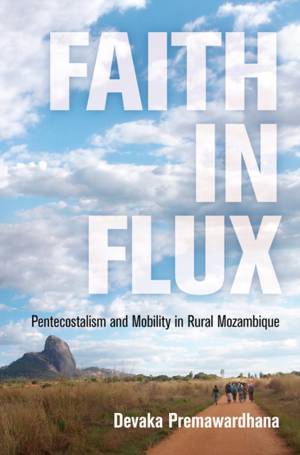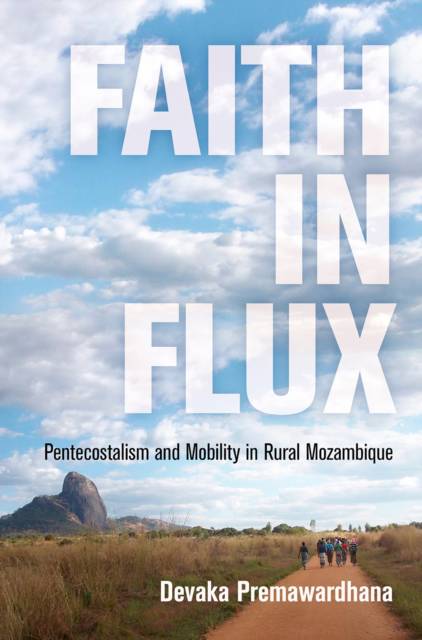
- Afhalen na 1 uur in een winkel met voorraad
- Gratis thuislevering in België vanaf € 30
- Ruim aanbod met 7 miljoen producten
- Afhalen na 1 uur in een winkel met voorraad
- Gratis thuislevering in België vanaf € 30
- Ruim aanbod met 7 miljoen producten
Omschrijving
Anthropologist Devaka Premawardhana arrived in Africa to study the much reported explosion of Pentecostalism, the spread of which has indeed been massive. It is the continent's fastest growing form of Christianity and one of the world's fastest growing religious movements. Yet Premawardhana found no evidence for this in the province of Mozambique where he worked. His research suggests that much can be gained by including such places in the story of global Christianity, by shifting attention from the well-known places where Pentecostal churches flourish to the unfamiliar places where they fail.
In Faith in Flux, Premawardhana documents the ambivalence with which Pentecostalism has been received by the Makhuwa, an indigenous and historically mobile people of northern Mozambique. The Makhuwa are not averse to the newly arrived churches--many relate to them powerfully. Few, however, remain in them permanently. Pentecostalism has not firmly taken root because it is seen as one potential path among many--a pragmatic and pluralistic outlook befitting a people accustomed to life on the move.
This phenomenon parallels other historical developments, from responses to colonial and postcolonial intrusions to patterns of circular migration between rural villages and rising cities. But Premawardhana primarily attributes the religious fluidity he observed to an underlying existential mobility, an experimental disposition cultivated by the Makhuwa in their pre-Pentecostal pasts and carried by them into their post-Pentecostal futures. Faith in Flux aims not to downplay the influence of global forces on local worlds, but to recognize that such forces, explosive though they may be, never succeed in capturing the everyday intricacies of actual lives.
Specificaties
Betrokkenen
- Auteur(s):
- Uitgeverij:
Inhoud
- Aantal bladzijden:
- 232
- Taal:
- Engels
- Reeks:
Eigenschappen
- Productcode (EAN):
- 9780812225105
- Verschijningsdatum:
- 23/11/2021
- Uitvoering:
- Paperback
- Formaat:
- Trade paperback (VS)
- Afmetingen:
- 150 mm x 226 mm
- Gewicht:
- 340 g

Alleen bij Standaard Boekhandel
Beoordelingen
We publiceren alleen reviews die voldoen aan de voorwaarden voor reviews. Bekijk onze voorwaarden voor reviews.











